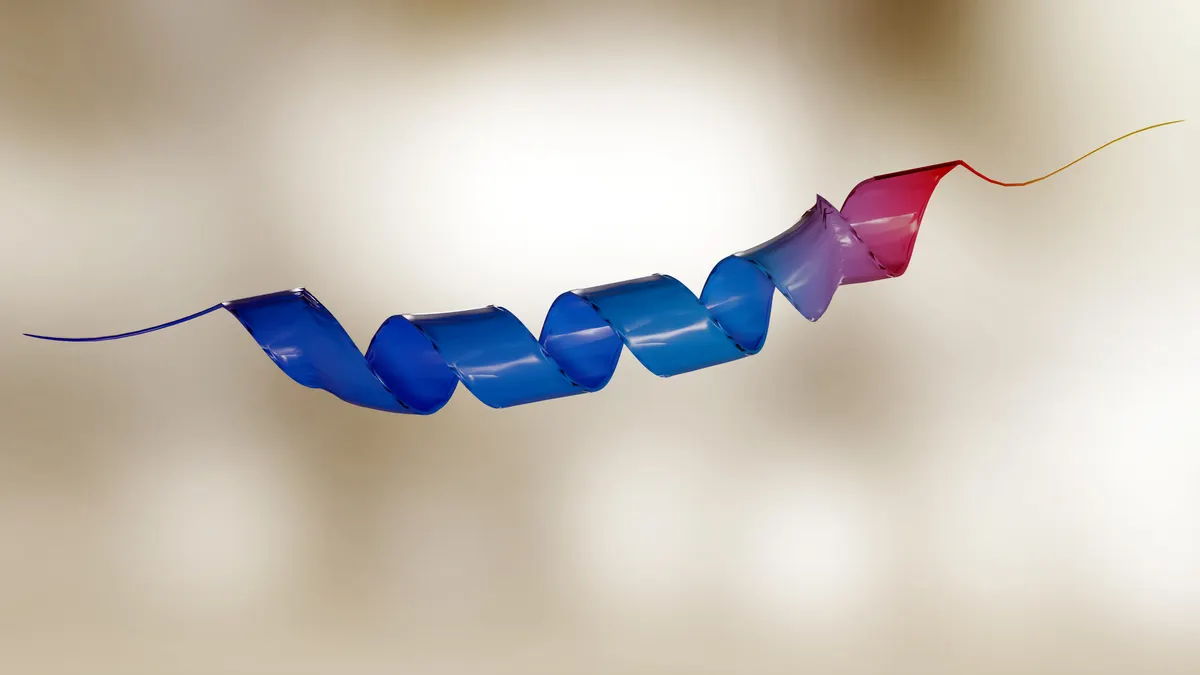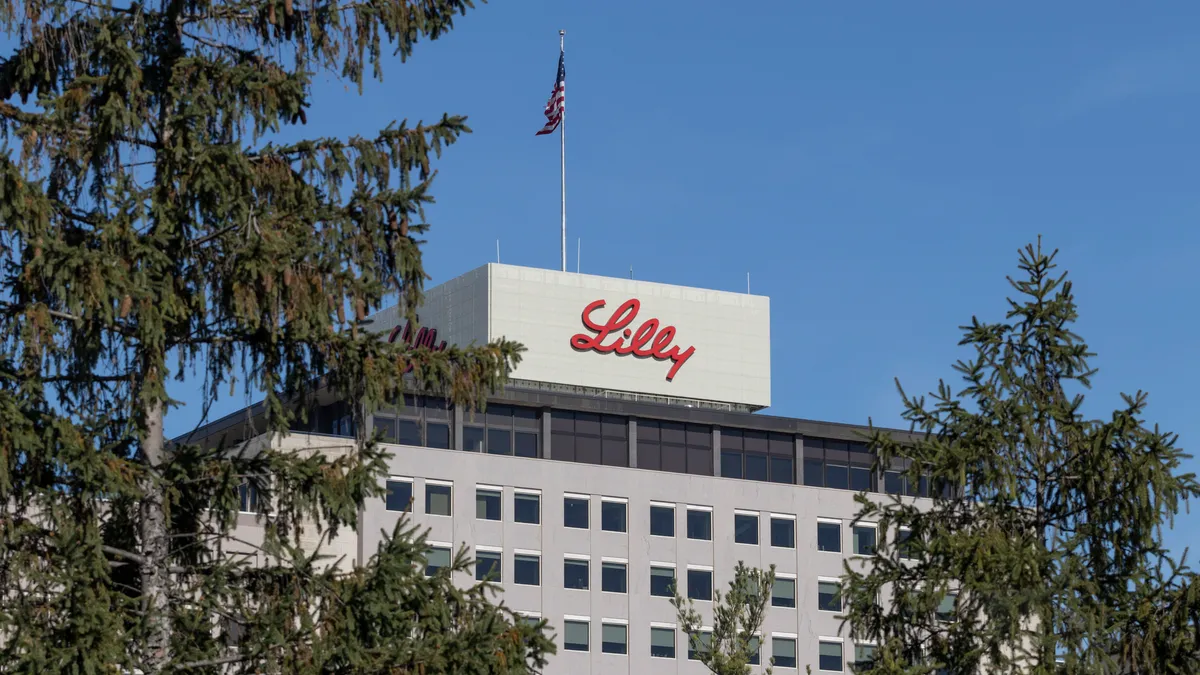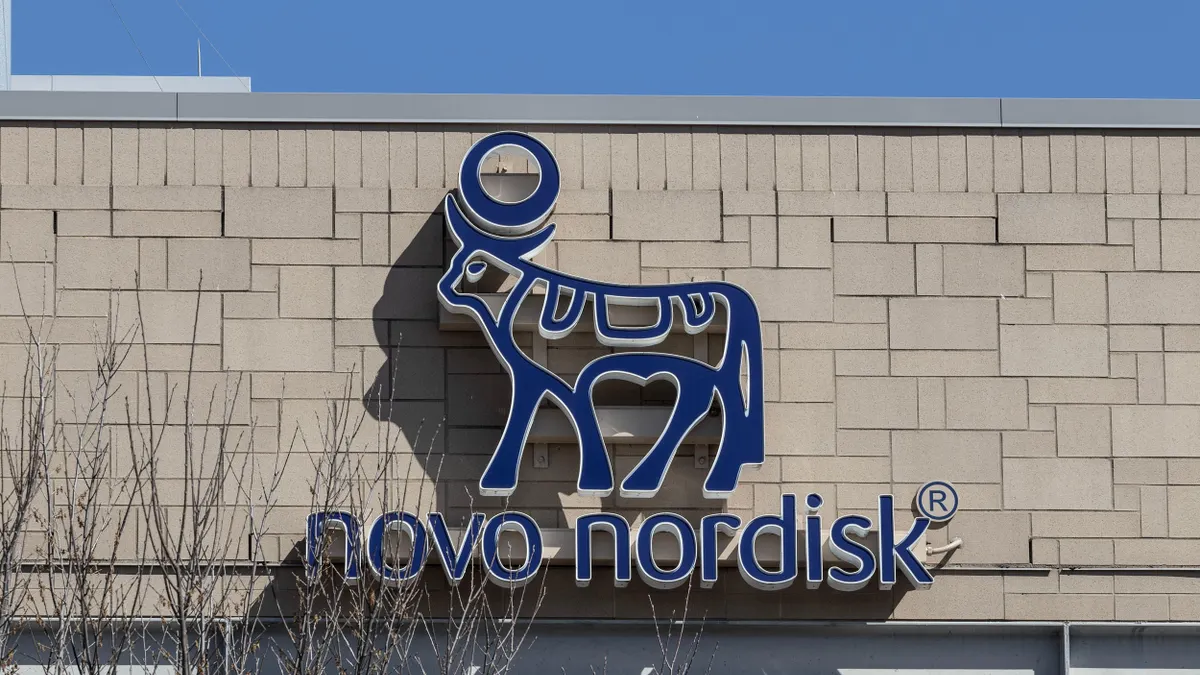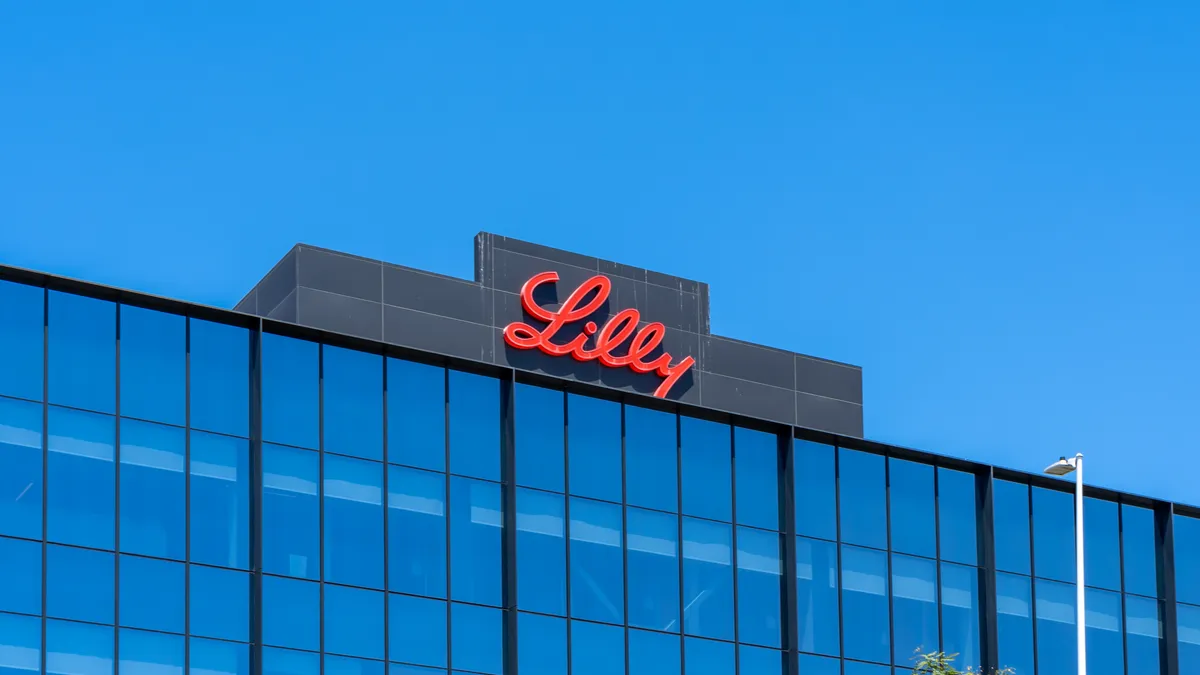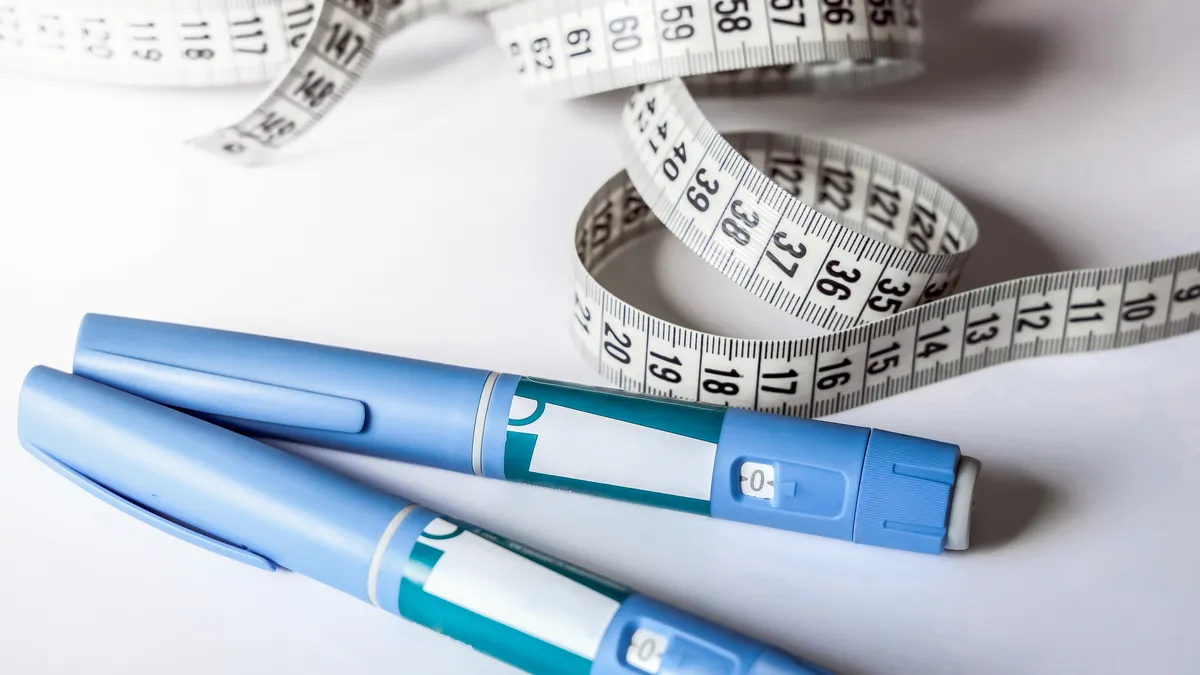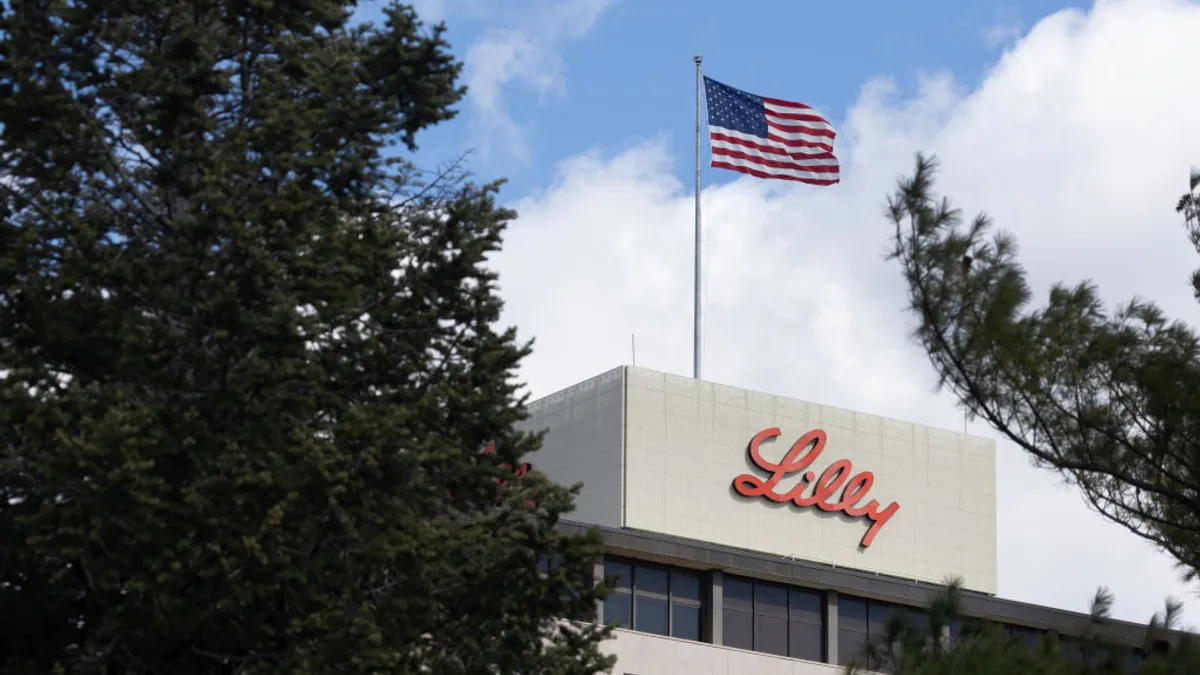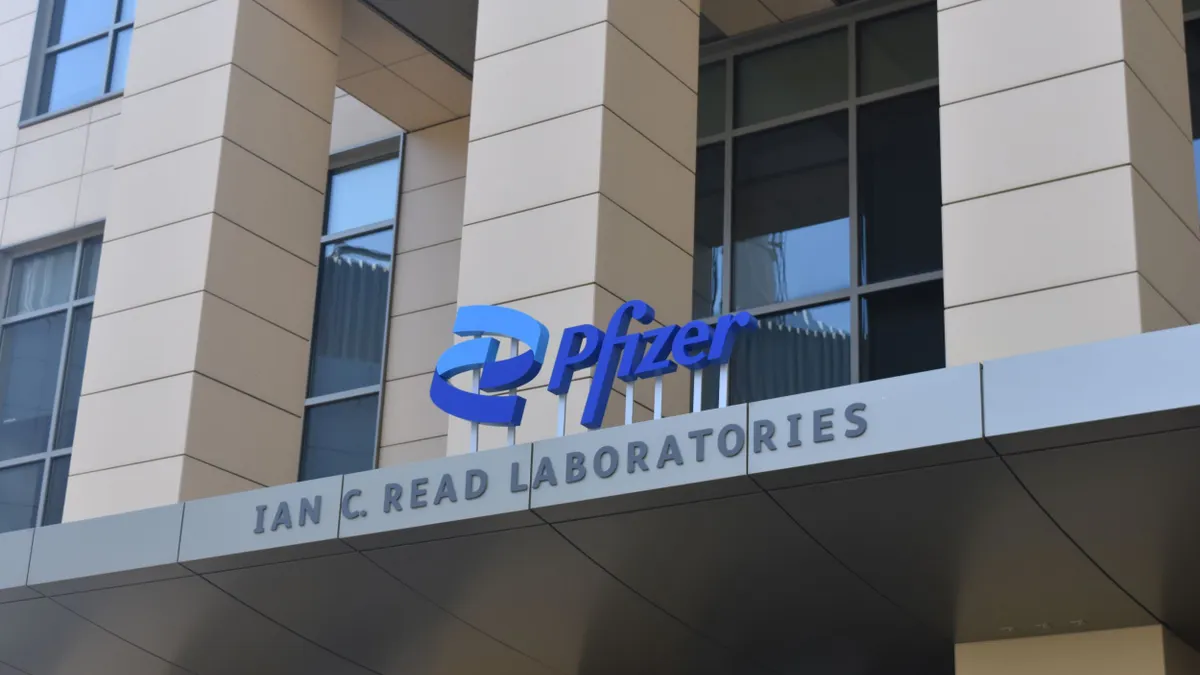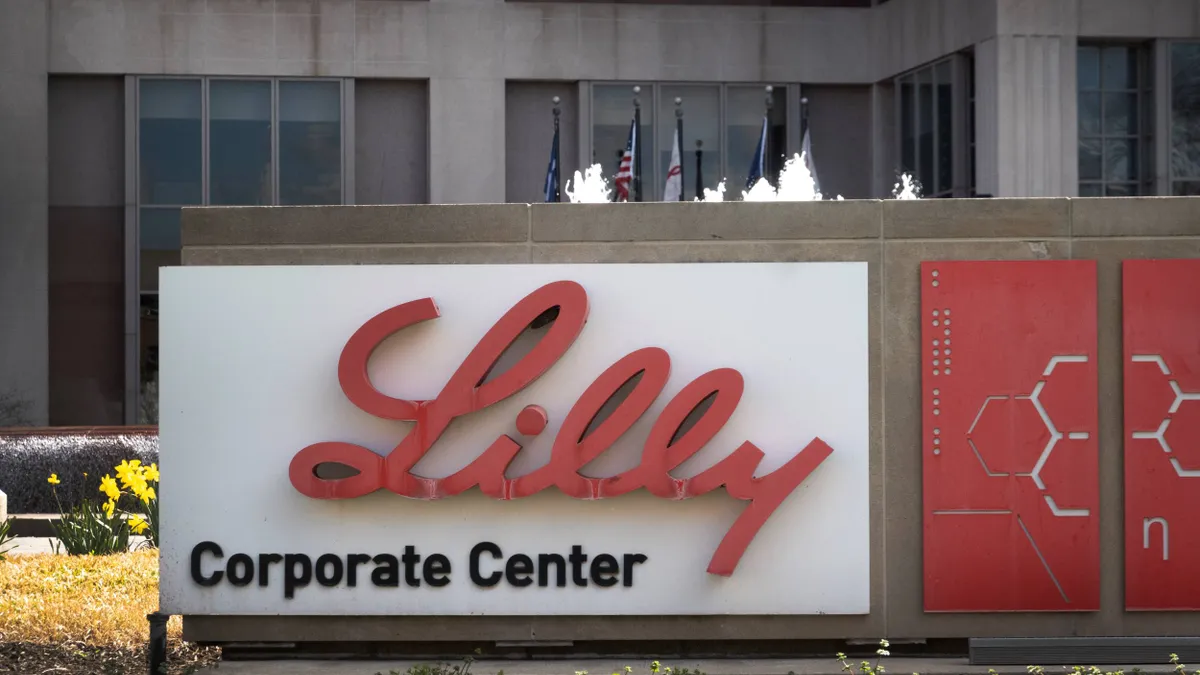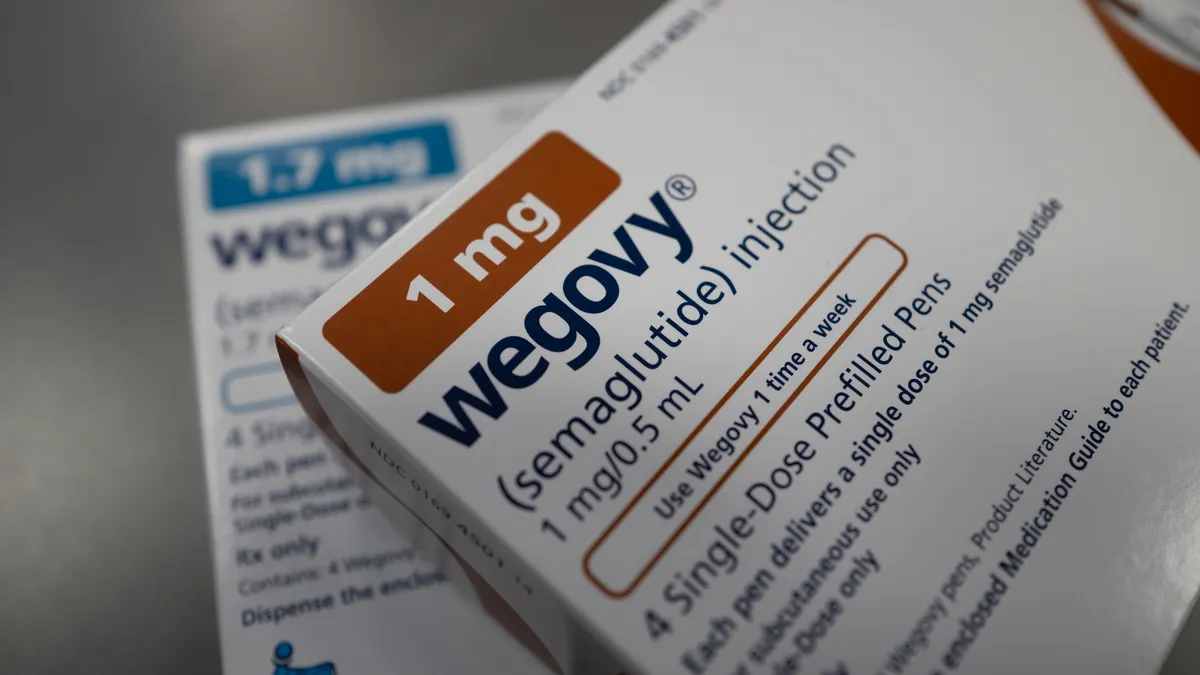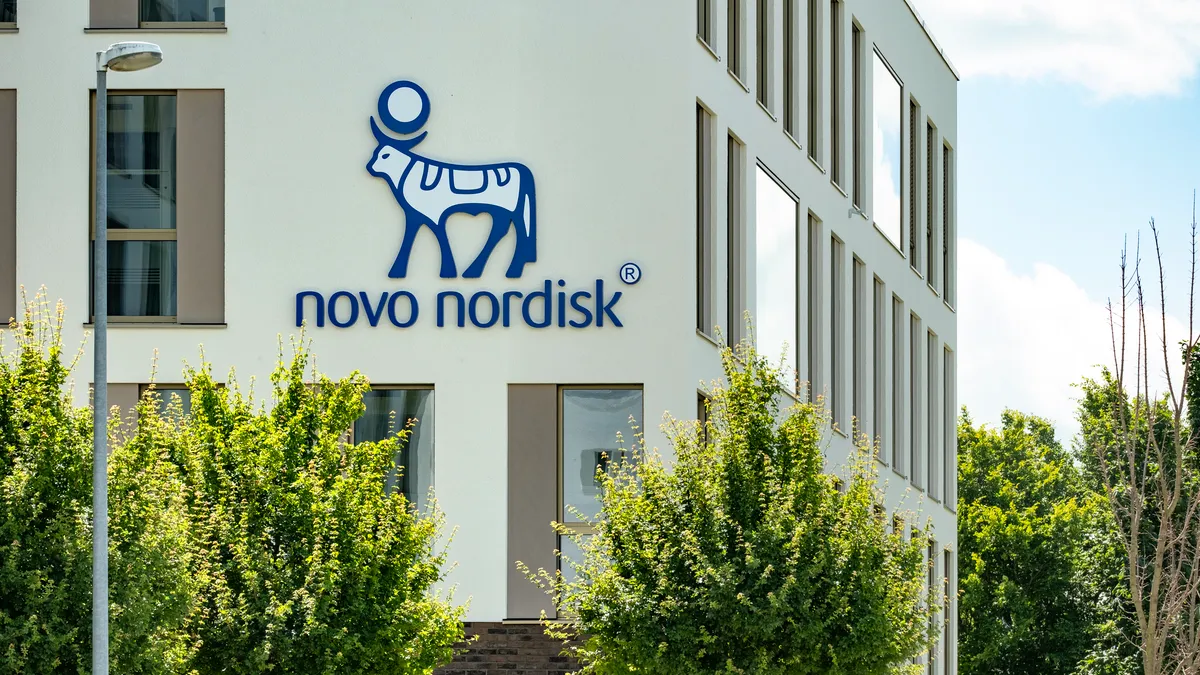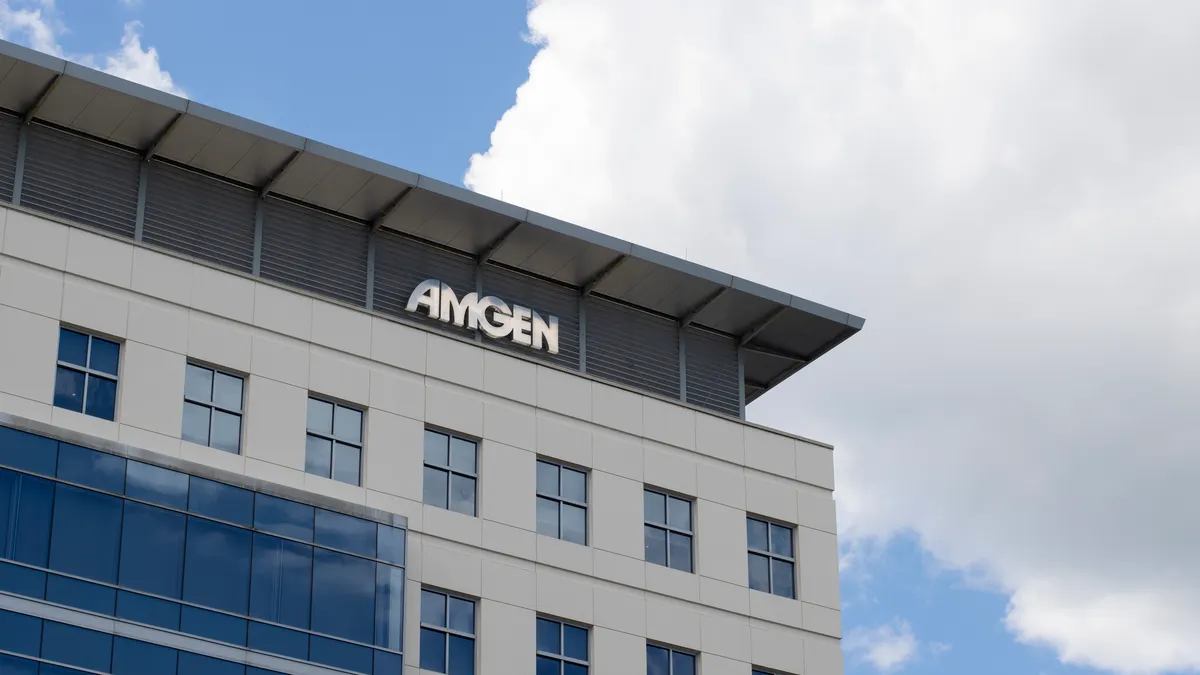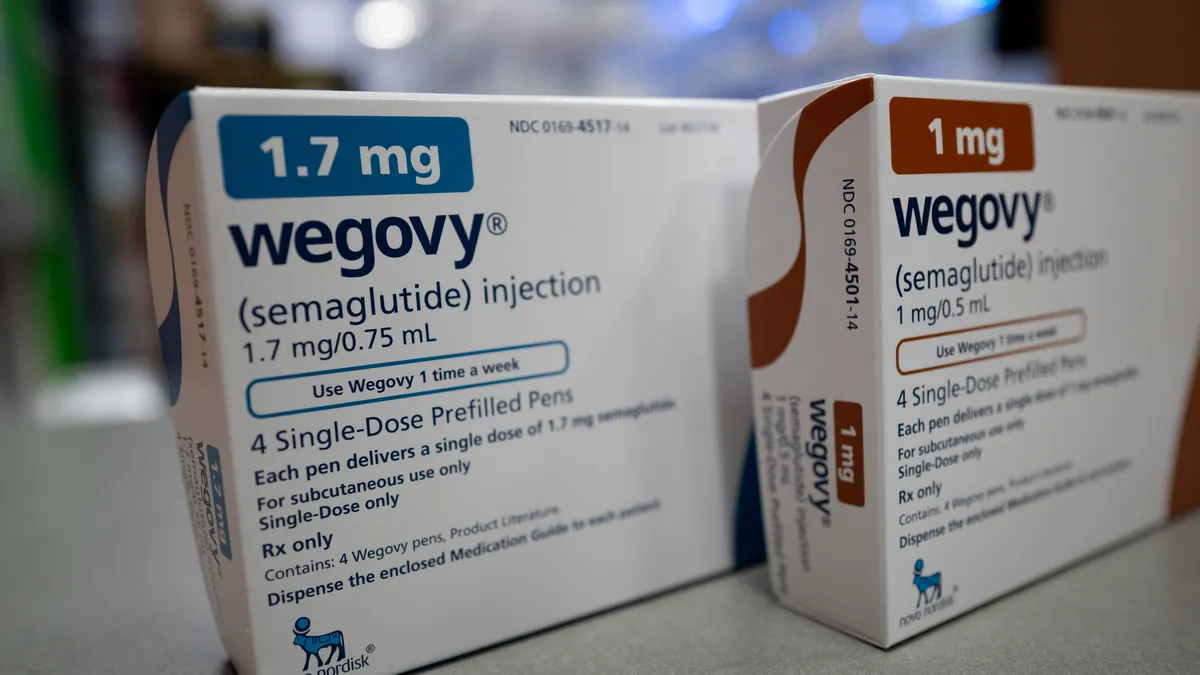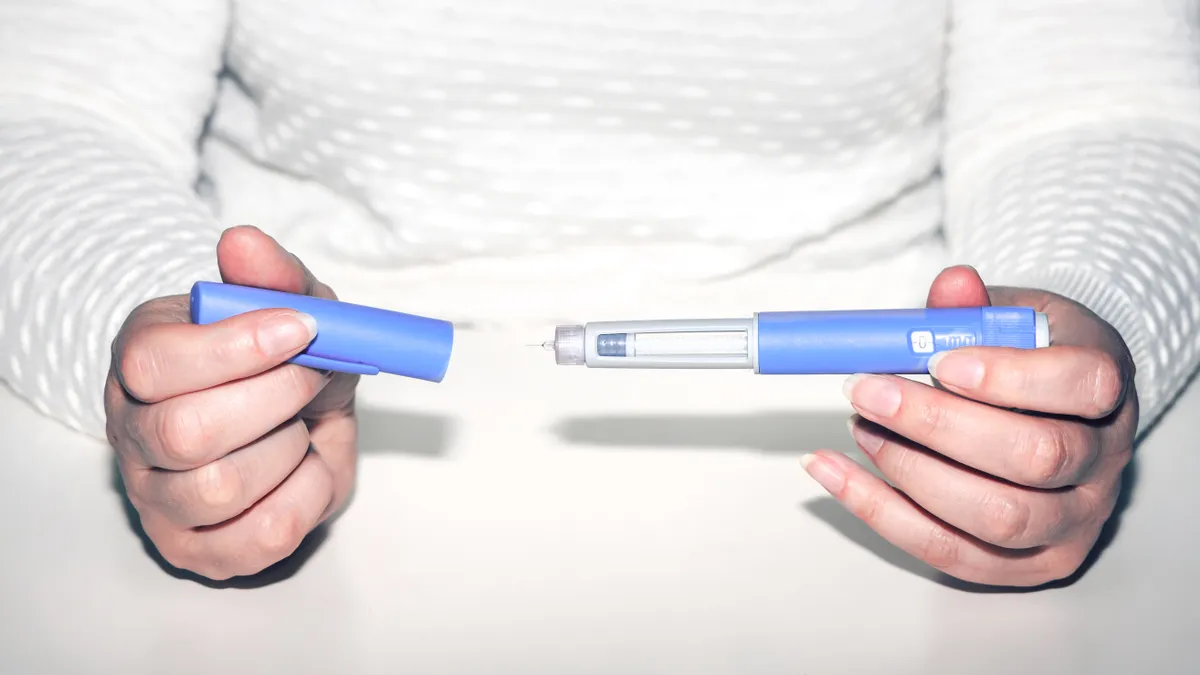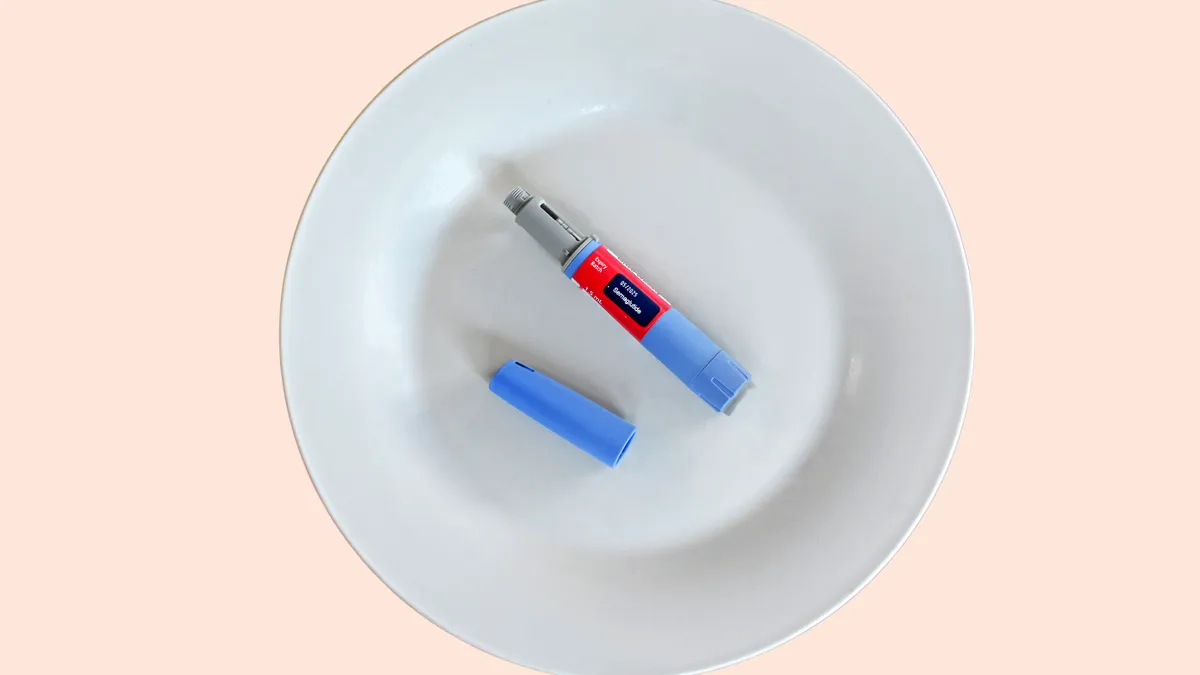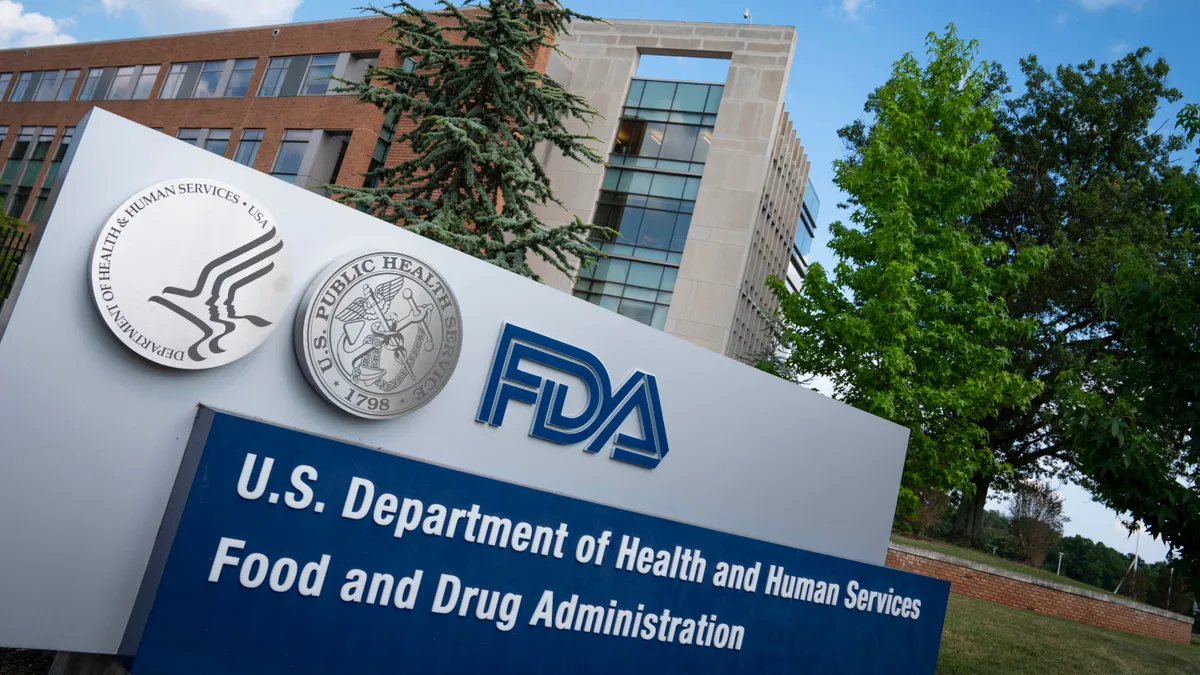Dive Brief:
- An experimental, dual-acting obesity drug from Hengrui Pharma and biotechnology startup Kailera Therapeutics succeeded in a Phase 3 trial in China, positioning the companies to seek approval there and to begin global late-stage testing.
- The drug, a once-weekly injection dubbed HRS9531, spurred about 18% weight loss in treated participants after 48 weeks, roughly 16% more than those given a placebo. Nearly 9 in 10 people given HRS9531 lost at least 5% of their body weight and over 44% achieved at least 20% weight loss, the companies said Tuesday.
- Hengrui and Kailera didn’t disclose specific safety data, only noting that most treatment-emergent adverse events were mild to moderate and gastrointestinal-related. Detailed results will be presented at a future medical meeting. Hengrui will file an approval application in China, while Kailera will initiate global studies that involve higher doses and a longer treatment duration, the startup’s CEO, veteran executive Ron Renaud, said in the statement.
Dive Insight:
Launched last October with $400 million in funding, Kailera was one of several startups venture capital firms have recently formed around medicines licensed from China. The trend reflects the growth of the biotech sector there, as well as the speed at which new drugs in China can be brought to clinical testing.
That growth hasn’t slowed, either. A report published by the investment bank Jefferies on Monday showed that one-third of the drug industry’s licensing deal spending in the first half of 2025 involved China-originated drugs, compared to 21% in 2023 and 2024 and single-digit percentages before that. These deals historically have centered on cancer drugs, but now involve a broader group of indications, from inflammatory diseases to obesity. China’s drug companies are “reshaping the U.S. biopharma landscape,” the Jefferies team wrote.
Kailera is among eight drug companies since late 2023 — among them Merck & Co., Novo Nordisk and Regeneron Pharmaceuticals — to turn to China in search of an obesity drug. Last May, the company licensed rights outside of Greater China to multiple Hengrui candidates in return for more than $100 million in upfront and near-term payments, a 20% equity stake and nearly $6 billion in future milestones.
The most advanced drug in that deal is HRS9531, which, like Eli Lilly’s Zepbound and some others in clinical development, targets a pair of gut hormones called GLP-1 and GIP.
Kailera CEO Renaud claims the drug has “best-in-class potential.” In their statement, the companies noted how one pre-specified analysis showed patients on the highest tested dose in the Phase 3 study lost up to 19.2% of their body weight after 48 weeks. The drug’s effects hadn’t plateaued, suggesting they could improve with time, Hengrui and Kailera added.
The companies have not yet proven their drug in the type of larger and longer global study that supported Zepbound’s U.S. approval. Hengrui’s study enrolled 567 adults with obesity or who are overweight and have at least one weight-related medical condition. Participants were randomized to receive either a 2 milligram, 4 milligram, or 6 milligram weekly injection of HRS9531, or placebo, for 48 weeks.
In a pair of late-stage trials that enrolled more than 3,000 people with obesity or diabetes, Lilly’s drug was associated with as much as about 21% weight loss after 72 weeks. Companies like Lilly and Novo Nordisk are also close to bringing oral medicines to market and have other follow-on medicines in advanced testing, raising the bar for competitors like Kailera.
Kailera is advancing Hengrui’s drug outside of China under the name KAI-9531.



